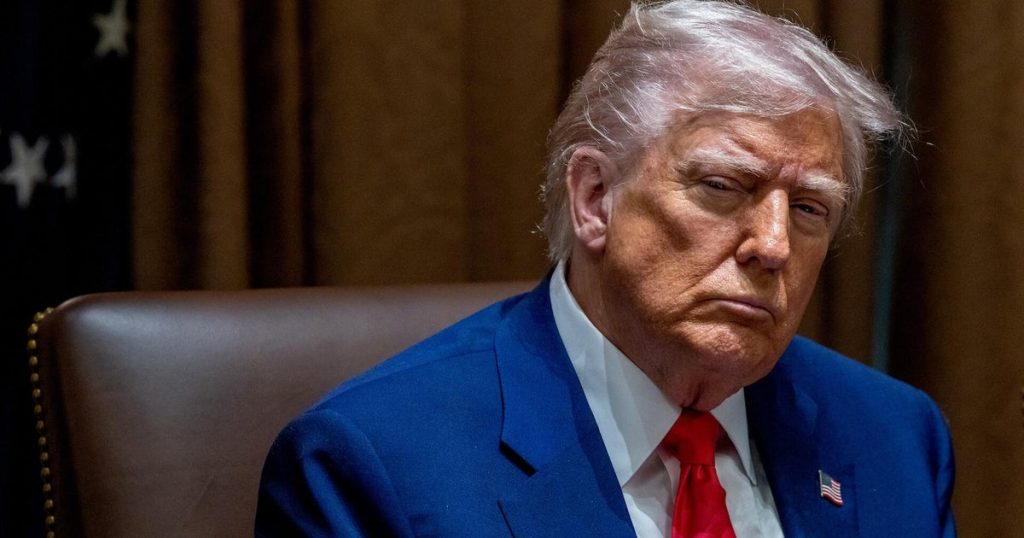The Supreme Court is set to hear crucial arguments next month regarding the Trump administration’s push to enforce an executive order aimed at limiting birthright citizenship. This order seeks to change the long-standing interpretation established by the 14th Amendment, which has been understood to guarantee citizenship to all individuals born in the United States. The case is part of a broader legal battle over immigration policies that continue to spark significant debate across the country.
| Article Subheadings |
|---|
| 1) Background of the Executive Order |
| 2) Legal Challenges Faced by the Order |
| 3) The Supreme Court’s Role |
| 4) Implications of the Court’s Decision |
| 5) Broader Context of Immigration Policy |
Background of the Executive Order
On his first day back in office, President Trump signed an executive order aimed at altering existing laws related to birthright citizenship. This policy stipulates that children born in the United States to undocumented immigrants or to individuals in the country temporarily would not automatically be granted citizenship. The move reflects an administration priority to reshape immigration laws to reflect a more restrictive stance on who qualifies for citizenship. Since the inception of this directive, it has sparked protests and significant political discourse regarding the interpretation of the 14th Amendment, which has historically protected birthright citizenship.
Legal Challenges Faced by the Order
The implementation of the executive order faced immediate backlash, leading to multiple lawsuits filed across various federal courts before the measure officially took effect. These lawsuits challenged the legality of the order, asserting that it violates established constitutional rights under the 14th Amendment. Several federal district courts, particularly in Washington, Maryland, and Massachusetts, issued nationwide injunctions that effectively blocked the administration from enforcing the order. Subsequently, appeals courts in San Francisco, Boston, and Richmond upheld these injunctions, denying requests from the Trump administration to mitigate their scope. The administration’s legal strategies to limit these injunctions and assert emergency relief underscore the contentious nature of this legal battle.
The Supreme Court’s Role
In response to the persistent legal obstacles, the Justice Department filed emergency appeals with the Supreme Court in March, seeking relief from the injunctions that currently prevent any enforcement of the birthright citizenship order. The court has scheduled oral arguments for May 15, which will focus on the administration’s request to limit the injunctions to the plaintiffs involved in the cases, rather than applying them nationwide. This appeal illustrates both the administration’s expectation of judicial support and the potential for the Supreme Court to facilitate changes in immigration policy that could have lasting effects throughout the country.
Implications of the Court’s Decision
The implications of the Supreme Court’s decision in this case could be significant, potentially altering the landscape of citizenship in the United States. If the court decides to allow the Trump administration’s executive order to take effect, it could lead to a significant number of children born to non-citizens being denied citizenship, thus raising concerns about statelessness and legal status for these individuals. Critics argue that such a decision would undermine centuries of legal precedent and set a dangerous precedent for executive overreach in matters traditionally reserved for legislative processes. This heightened scrutiny on the judicial interpretation of citizenship laws could elicit widespread social and political ramifications across the United States.
Broader Context of Immigration Policy
The ongoing conflict regarding birthright citizenship is part of a larger narrative surrounding immigration policy that has reached a boiling point under the Trump administration. More than 100 legal challenges targeting various aspects of Trump’s immigration agenda have emerged since his return to the White House, with many of these cases making their way to the Supreme Court. The executive order on birthright citizenship was initially propelled by claims of an immigration crisis at the U.S.-Mexico border, and the administration has faced intense scrutiny regarding its approach to immigration enforcement overall. This case, in particular, epitomizes the friction between executive power and established legal principles, revealing the complexities of navigating constitutional law in modern governance.
| No. | Key Points |
|---|---|
| 1 | The Supreme Court will address the Trump administration’s request concerning birthright citizenship next month. |
| 2 | The executive order aims to prevent citizenship for children born to undocumented immigrants. |
| 3 | Multiple federal courts have blocked the implementation of the executive order through nationwide injunctions. |
| 4 | The administration argues that the nationwide injunctions hamper its executive authority and immigration policy. |
| 5 | The outcome of the case could redefine citizenship rights in the U.S. |
Summary
The Supreme Court’s upcoming deliberations around the Trump administration’s executive order on birthright citizenship reflect crucial debates about immigration laws in the United States. By evaluating the legality of this directive, the Court will address broader implications that may affect thousands of individuals and could set a precedent regarding executive powers in matters of citizenship. As officials and advocacy groups prepare for the hearings, the ramifications of the Court’s decision will undoubtedly resonate throughout the legal, social, and political landscapes in the coming years.
Frequently Asked Questions
Question: What is the executive order regarding birthright citizenship?
The executive order aims to prevent automatic citizenship for children born to parents who are unlawfully present in the U.S. or in the country temporarily.
Question: Why is the Supreme Court involved in this case?
The Supreme Court is being asked to review the legality of the executive order and to decide if the Trump administration can enforce it while legal challenges are ongoing.
Question: What are the potential consequences of the Court’s decision?
If the Court allows the executive order to take effect, it could strip citizenship from thousands of American-born children, raising concerns about statelessness and legal rights.


